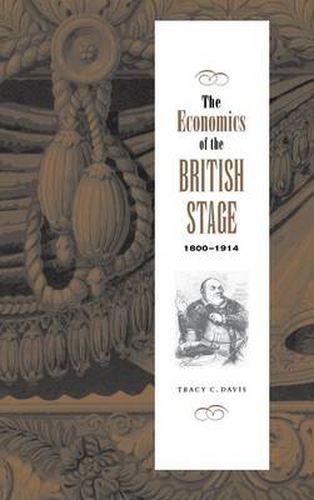Readings Newsletter
Become a Readings Member to make your shopping experience even easier.
Sign in or sign up for free!
You’re not far away from qualifying for FREE standard shipping within Australia
You’ve qualified for FREE standard shipping within Australia
The cart is loading…






During the nineteenth century, British theatre developed into an industry with considerable importance in the economy, diversified by whole new forms of entertainment - first music hall then cinema - evolving alongside the dramatic stage. This is the first comprehensive study to examine the theatre’s growth from an economic perspective. Tracy Davis reflects the debates of economic theorists from Adam Smith to Alfred Marshall to investigate three key areas: the state’s role in protecting theatre; the factors affecting the success or failure of theatre companies; and how theatre came to be regarded as one of the ‘service industries’. By grounding debates about subsidisation and the economic viability of the live arts in an era predating government funding, Davis sheds new light on the history of cultural policy for the arts in Britain. Her book will interest scholars across a range of disciplines - theatre, social history, economics, gender studies and the sociology of culture.
$9.00 standard shipping within Australia
FREE standard shipping within Australia for orders over $100.00
Express & International shipping calculated at checkout
During the nineteenth century, British theatre developed into an industry with considerable importance in the economy, diversified by whole new forms of entertainment - first music hall then cinema - evolving alongside the dramatic stage. This is the first comprehensive study to examine the theatre’s growth from an economic perspective. Tracy Davis reflects the debates of economic theorists from Adam Smith to Alfred Marshall to investigate three key areas: the state’s role in protecting theatre; the factors affecting the success or failure of theatre companies; and how theatre came to be regarded as one of the ‘service industries’. By grounding debates about subsidisation and the economic viability of the live arts in an era predating government funding, Davis sheds new light on the history of cultural policy for the arts in Britain. Her book will interest scholars across a range of disciplines - theatre, social history, economics, gender studies and the sociology of culture.